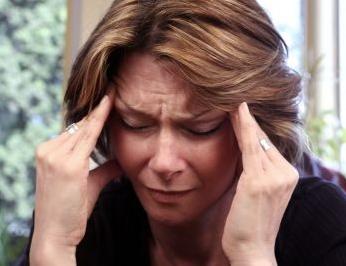
Do you suffer from headaches of migraines? Would you rather avoid pharmaceutical medications to ease the pain? If so you are not alone. Headaches and migraines are common complaints; and many people are concerned about the amount of strong medications they take to relive pain. Many pain relieving pharmaceutical medicines cause unwanted and potentially damaging side effects; especially if taken frequently or over a long period of time. Any type of medicine, including natural medicine must be taken at the recommended dose.
The Naturopathic Approach
The naturopathic approach uses natural methods to prevent migraines or headaches occurring. If they do occur we recommend natural remedies to relieve pain. Recent research has looked at the natural approaches to preventing and relieving headaches and migraines.
The Food and Drinks that can Cause Migraines and Headaches
There are various causes of headaches and migraines; naturopaths explore the reasons you have pain. Your diet and lifestyle is a major consideration. A food intolerance or allergy may be involved. Ensuring the basics of a health promoting diet is a starting point for all. Water will help prevent the headaches, avoid alcohol and caffeine as both can cause headaches and migraines[ 1-3]. Chocolate, sugar and monosodium glutamate (MSG), found in many fast foods and processed foods frequently trigger migraines, and are unnecessary in a healthy diet. [ 2-5] Dairy foods, wheat, oranges and eggs are a common triggers too[ 2, 4, 5], but do have health benefits so should only be excluded if absolutely necessary.

Caffeine: Why is it a problem? When does it help?
Although caffeine generally should be avoided as it can trigger migraines and headaches[ 6, 7], it can, in contrast also help give relief from migraine attacks and reduce pain[ 8]. In fact it is included in many pharmaceutical medicines to reduce migraine pain[ 8, 9]. However if medicines containing caffeine are taken too frequently the headaches reoccur [ 10]. Withdrawal from caffeine can also cause headaches and migraines[ 11]. Sometimes people find headaches and migraines only occur at weekends; a time they may be drinking less coffee[ 11]. Gradually reducing coffee or soft drinks such as colas which contain caffeine can stop withdrawal headaches and migraines from occurring[ 7].
Stress and Migraines and Headaches: Exercise and Relaxation
Feeling stressed can also cause migraines and headaches.[ 3, 5]. Regular exercise which helps in managing the stress will help decrease the frequency headaches[ 1]. Naturopaths suggest incorporating relaxation times into your day at home or at work; such relaxation techniques have been shown to decrease the frequency and intensity of headaches and migraines[ 12, 13].
Research: Nutrients that Prevent and Relieve Headaches and Migraines
Research has demonstrated that there are particular nutrients that may be beneficial to prevent or decrease the pain suffered in headaches and migraines.
Vitamin B2 (riboflavin) and Other B Vitamins
Research over many years has shown Vitamin B2 also called riboflavin can help prevent and decrease the frequency of headaches especially of migraines or tension-type headaches in both children and adults[ 14-17]. As well as being effective it also has less side effects and is cheaper than other treatments for migraine[ 15]. A study of people suffering from migraine who took Vitamin B2 found that the number of migraine attacks a month decreased by half, and when the attacks occurred not as much pain relieving medication was needed[ 16]. Other B vitamins have are also important, folic acid (a B vitamin), Vitamin B6 and Vitamin B12 have been shown to decrease the frequency and severity if migraines and headaches[ 17, 18].
Coenzyme Q10
Recent research indicates that Coenzyme Q10 is likely to be low in adults and children who suffer from migraine; and that taking supplements of Coenzyme Q10 over 3 months decreased the occurrence of migraines and headaches[ 17, 19, 20].
Magnesium
Of all the nutrients studied magnesium is perhaps the best known to decrease the frequency and severity of migraines and headaches.[ 6, 17, 21-25]. Naturopaths have always promoted foods that are naturally high in magnesium; such as green leafy vegetables, whole grains, nuts and seeds. In one study all children with chronic tension-type headaches given magnesium supplements had a reduction of the headache symptoms; most had the symptom decreased by half. And pharmaceutical medication also decreased by half[ 26]. In another study over 3 months the improvements were even greater, with about a two third reduction in pain and medication [ 27].
Magnesium and the foods containing magnesium are considered especially important by naturopaths, not only for headaches and migraines but also where there are problems with muscles and bones [ 22, 24].
Vitamin D
Vitamin D another nutrient which is likely to be low if the headache is related to problems with muscles or bones.[ 28].
Menstrual Problems, Migraines and Vitamin E
Naturopaths exploring other triggers for migraines and headaches such as menstrual problems will not only look at aspects of the diet and herbal medicine which help in hormonal balance but will consider the need for vitamin E as this has been shown to help prevent migraines associated with menstrual problems, and related reduce pain, light sensitivity, and nausea[ 29].
If I do use supplements I recommend the Entire Katoa Food State range for the optimum absorption, low dose and low toxicity.
Herbal medicine
Herbal medicine is frequently used by naturopaths to help people who have migraines and headaches. The choice of herbs varies enormously according to the areas of the body that are considered most in need of support; such as the nervous system, hormones, the muscles and bones. For pain relief, ginger and feverfew have been shown by research studies to be among the most effective and safe, although the research is still in early stages [ 30-32].
References
1. Milde-Busch A, Blaschek A, Borggrafe I, Heinen F, Straube A, von Kries R: Associations of diet and lifestyle with headache in high-school students: results from a cross-sectional study. Headache 2010, 50(7):1104-1114.
2. Millichap JG, Yee MM: The diet factor in pediatric and adolescent migraine. Pediatric neurology 2003, 28(1):9-15.
3. Fukui PT, Goncalves TR, Strabelli CG, Lucchino NM, Matos FC, Santos JP, Zukerman E, Zukerman-Guendler V, Mercante JP, Masruha MR et al: Trigger factors in migraine patients. Arq Neuropsiquiatr 2008, 66(3A):494-499
4. Grant EG: FOOD ALLERGIES AND MIGRAINE . The Lancet 1979, 313(8123):966-969.
5. Wober C, Holzhammer J, Zeitlhofer J, Wessely P, Wober-Bingol C: Trigger factors of migraine and tension-type headache: experience and knowledge of the patients . J Headache Pain 2006, 7(4):188-195.
6. Mauskop A, Altura BT, Cracco RQ, Altura BM: Chronic daily headache- one disease or two? Diagnostic role of serum ionized magnesium. Cephalalgia 1994, 14(1):24-28.http://dx.doi.org/10.1046/j.1468-2982.1994.1401024.x
7. Hering-Hanit R, Gadoth N: Caffeine-induced headache in children and adolescents. Cephalalgia 2003, 23(5):332-335.http://www.ncbi.nlm.nih.gov/pubmed/12780761
8. Ward N, Whitney C, Avery D, Dunner D: The analgesic effects of caffeine in headache. Pain 1991, 44(2):151-155.http://www.ncbi.nlm.nih.gov/pubmed/2052380
9. Galeotti N, Ghelardini C, Grazioli I, Uslenghi C: Indomethacin, caffeine and prochlorperazine alone and combined revert hyperalgesia in in vivo models of migraine. Pharmacol Res 2002, 46(3):245-250.http://www.ncbi.nlm.nih.gov/pubmed/12220967
10. Ferrari A, Savino G, Gallesi D, Pinetti D, Bertolini A, Sances G, Coccia CP, Pasciullo G, Leone S, Loi M et al: Effect of overuse of the antimigraine combination of indomethacin, prochlorperazine and caffeine (IPC) on the disposition of its components in chronic headache patients. Pharmacol Res 2006, 54(2):142-149. http://www.ncbi.nlm.nih.gov/pubmed/16697657
11. Couturier EG, Hering R, Steiner TJ: Weekend attacks in migraine patients: caused by caffeine withdrawal? Cephalalgia 1992, 12(2):99-100.http://www.ncbi.nlm.nih.gov/pubmed/1576651
12. D'Souza PJ, Lumley MA, Kraft CA, Dooley JA: Relaxation training and written emotional disclosure for tension or migraine headaches: a randomized, controlled trial. Ann Behav Med 2008, 36(1):21-32.http://www.ncbi.nlm.nih.gov/pubmed/18696172
13. Gutkin AJ, Holborn SW, Walker JR, Anderson BA: Cost-effectiveness of home relaxation training for tension headaches. J Behav Ther Exp Psychiatry 1994, 25(1):69-74.http://www.ncbi.nlm.nih.gov/pubmed/7962583
14. Bruijn J, Duivenvoorden H, Passchier J, Locher H, Dijkstra N, Arts WF: Medium-dose riboflavin as a prophylactic agent in children with migraine: a preliminary placebo-controlled, randomised, double-blind, cross-over trial. Cephalalgia 2010, 30(12):1426-1434. http://www.ncbi.nlm.nih.gov/pubmed/20974610
15. Condo M, Posar A, Arbizzani A, Parmeggiani A: Riboflavin prophylaxis in pediatric and adolescent migraine. J Headache Pain 2009, 10(5):361-365.http://www.ncbi.nlm.nih.gov/pubmed/19649688
16. Boehnke C, Reuter U, Flach U, Schuh-Hofer S, Einhaupl KM, Arnold G: High-dose riboflavin treatment is efficacious in migraine prophylaxis: an open study in a tertiary care centre. Eur J Neurol 2004, 11(7):475-477. http://www.ncbi.nlm.nih.gov/pubmed/15257686
17. Bianchi A, Salomone S, Caraci F, Pizza V, Bernardini R, D'Amato CC: Role of magnesium, coenzyme Q10, riboflavin, and vitamin B12 in migraine prophylaxis. Vitam Horm 2004, 69:297-312.http://www.ncbi.nlm.nih.gov/pubmed/15196887
18. Lea R, Colson N, Quinlan S, Macmillan J, Griffiths L: The effects of vitamin supplementation and MTHFR (C677T) genotype on homocysteine-lowering and migraine disability. Pharmacogenet Genomics 2009, 19(6):422-428.http://www.ncbi.nlm.nih.gov/pubmed/19384265
19. Hershey AD, Powers SW, Vockell AL, Lecates SL, Ellinor PL, Segers A, Burdine D, Manning P, Kabbouche MA: Coenzyme Q10 deficiency and response to supplementation in pediatric and adolescent migraine. Headache 2007, 47(1):73-80. http://www.ncbi.nlm.nih.gov/pubmed/17355497
20. Rozen TD, Oshinsky ML, Gebeline CA, Bradley KC, Young WB, Shechter AL, Silberstein SD: Open label trial of coenzyme Q10 as a migraine preventive. Cephalalgia 2002, 22(2):137-141. http://www.ncbi.nlm.nih.gov/pubmed/11972582
21. Wang F, Van Den Eeden SK, Ackerson LM, Salk SE, Reince RH, Elin RJ: Oral magnesium oxide prophylaxis of frequent migrainous headache in children: a randomized, double-blind, placebo-controlled trial. Headache 2003, 43(6):601-610.http://www.ncbi.nlm.nih.gov/pubmed/12786918
22. Altura BM, Altura BT: Tension headaches and muscle tension: is there a role for magnesium? Medical hypotheses 2001, 57(6):705-713.http://linkinghub.elsevier.com/retrieve/pii/S0306987701914392?showall=true
23. Lodi R, Iotti S, Cortelli P, Pierangeli G, Cevoli S, Clementi V, Soriani S, Montagna P, Barbiroli B: Deficient energy metabolism is associated with low free magnesium in the brains of patients with migraine and cluster headache. Brain Res Bull 2001, 54(4):437-441. http://www.ncbi.nlm.nih.gov/pubmed/11306197
24. Mazzotta G, Sarchielli P, Alberti A, Gallai V: Electromyographical ischemic test and intracellular and extracellular magnesium concentration in migraine and tension-type headache patients. Headache 1996, 36(6):357-361.http://www.ncbi.nlm.nih.gov/pubmed/8707553
25. Goksel BK, Torun D, Karaca S, Karatas M, Tan M, Sezgin N, Benli S, Sezer S, Ozdemir N: Is low blood magnesium level associated with hemodialysis headache? Headache 2006, 46(1):40-45. http://www.ncbi.nlm.nih.gov/pubmed/16412150
26. Grazzi L, Andrasik F, Usai S, Bussone G: Magnesium as a treatment for paediatric tension-type headache: a clinical replication series. Neurol Sci 2005, 25(6):338-341.http://www.ncbi.nlm.nih.gov/pubmed/15729497
27. Grazzi L, Andrasik F, Usai S, Bussone G: Magnesium as a preventive treatment for paediatric episodic tension-type headache: results at 1-year follow-up. Neurol Sci 2007, 28(3):148-150.http://www.ncbi.nlm.nih.gov/pubmed/17603767
28. Knutsen KV, Brekke M, Gjelstad S, Lagerlov P: Vitamin D status in patients with musculoskeletal pain, fatigue and headache: a cross-sectional descriptive study in a multi-ethnic general practice in Norway. Scand J Prim Health Care 2010, 28(3):166-171.http://www.ncbi.nlm.nih.gov/pubmed/20642395
29. Ziaei S, Kazemnejad A, Sedighi A: The effect of vitamin E on the treatment of menstrual migraine. Med Sci Monit 2009, 15(1):CR16-19.http://www.ncbi.nlm.nih.gov/pubmed/19114966
30. Diener HC, Pfaffenrath V, Schnitker J, Friede M, Henneicke-von Zepelin HH: Efficacy and safety of 6.25 mg t.i.d. feverfew CO2-extract (MIG-99) in migraine prevention--a randomized, double-blind, multicentre, placebo-controlled study. Cephalalgia 2005, 25(11):1031-1041. http://www.ncbi.nlm.nih.gov/pubmed/16232154
31. Pittler MH, Ernst E: Feverfew for preventing migraine. Cochrane Database Syst Rev 2004(1):CD002286. http://www.ncbi.nlm.nih.gov/pubmed/14973986
32. Cady RK, Schreiber CP, Beach ME, Hart CC: Gelstat Migraine (sublingually administered feverfew and ginger compound) for acute treatment of migraine when administered during the mild pain phase. Med Sci Monit 2005, 11(9):PI65-69.http://www.ncbi.nlm.nih.gov/pubmed/16127373
see also Epsom Salts Baths Relax the Mind And Muscles
FIND OUT MORE ABOUT...